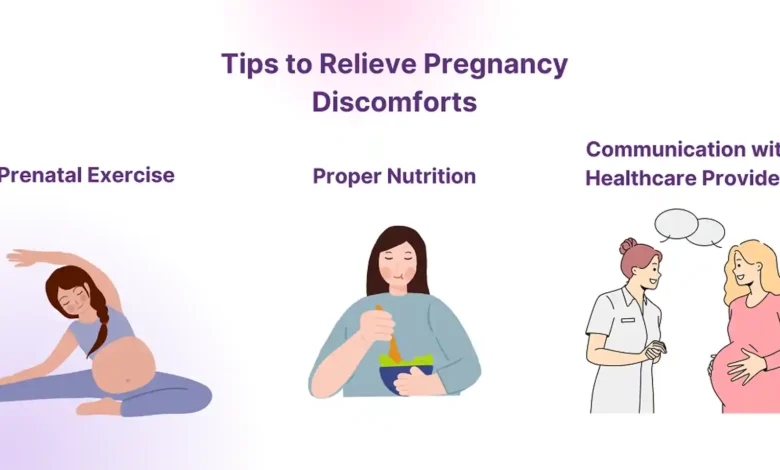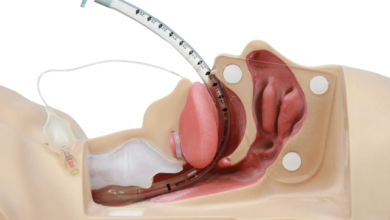Common Pregnancy Ailments and How to Find Relief

Pregnancy is a beautiful and life-changing experience, but it often comes with a range of physical discomforts. From early morning sickness to late-stage back pain, these ailments can make everyday activities feel challenging. Fortunately, understanding these common pregnancy discomforts and knowing how to alleviate them can make this journey a bit easier. In this blog post, we’ll explore some of the most common pregnancy ailments and offer tips on how to find relief.
1. Morning Sickness
One of the most common early pregnancy symptoms is morning sickness. Despite its name, it can strike at any time of the day. Morning sickness is characterized by nausea and vomiting, and while it’s most prevalent in the first trimester, some women experience it throughout their pregnancy.
Relief Tips:
- Eat small, frequent meals: Keeping food in your stomach can help reduce nausea. Opt for bland foods like crackers, toast, or rice.
- Stay hydrated: Dehydration can worsen nausea, so sip water or electrolyte drinks throughout the day.
- Ginger and Vitamin B6: Both ginger and Vitamin B6 have been shown to help reduce nausea. You can try ginger tea, ginger candies, or B6 supplements, but always consult your doctor before starting any new supplements.
- Acupressure bands: These wristbands apply pressure to a specific point on your wrist that may help alleviate nausea.
2. Back Pain
Back pain is another common pregnancy complaint, especially as your body changes to accommodate your growing baby. The weight of the baby can place extra strain on your lower back, and the hormone relaxin, which loosens ligaments in the pelvis, can add to the discomfort.
Relief Tips:
- Good posture: Make sure you stand and sit with proper posture. Keep your back straight and shoulders back to avoid additional strain.
- Supportive shoes: Avoid wearing high heels, as they can exacerbate back pain. Opt for flat, supportive shoes that help maintain your balance.
- Prenatal massage: A professional prenatal massage therapist in Saratoga Springs, Utah, can help alleviate tension in your back muscles, offering you much-needed comfort and relief during pregnancy.
- Warm baths and hot packs: A warm bath or heating pad on your back can help soothe sore muscles and alleviate tension.
3. Leg Cramps
Leg cramps, particularly at night, are a common pregnancy discomfort. These cramps typically occur in the calf muscles and can be excruciating, waking you from sleep.
Relief Tips:
- Stretch your legs: Regular stretching before bed can help prevent cramps. Try gently stretching your calf muscles by standing with your hands against a wall and pressing your heels to the floor.
- Stay hydrated: Dehydration can increase the frequency of leg cramps, so drink plenty of water throughout the day.
- Magnesium-rich foods: Magnesium can help prevent leg cramps. Incorporate foods like bananas, leafy greens, and nuts into your diet.
- Massage and heat: If you experience a cramp, try massaging the muscle and applying a warm compress to ease the pain.
4. Heartburn and Indigestion
As the pregnancy progresses, hormonal changes can slow down digestion, leading to heartburn and indigestion. The growing uterus can also put pressure on your stomach, causing acid reflux.
Relief Tips:
- Eat smaller meals: Larger meals can exacerbate heartburn, so opt for smaller, more frequent meals throughout the day.
- Avoid trigger foods: Foods like spicy dishes, citrus, chocolate, and caffeine can trigger acid reflux. Pay attention to which foods make your symptoms worse and avoid them.
- Sleep with your head elevated: Sleeping on your left side with your head propped up can help prevent acid from flowing back into the esophagus.
- Antacids: Consult with your doctor before taking any over-the-counter antacids, as some may be safe during pregnancy.
5. Swelling (Edema)
Swelling, especially in the feet, ankles, and hands, is another common pregnancy symptom. This occurs due to increased blood volume, hormonal changes, and the pressure exerted by the growing uterus on veins that return blood from your legs.
Relief Tips:
- Elevate your legs: Whenever possible, put your feet up to reduce swelling. This helps improve circulation and decreases fluid retention.
- Wear comfortable shoes: Opt for shoes that are comfortable and allow room for swelling. Avoid tight footwear or socks with elastic bands.
- Stay active: Light exercises, such as walking or swimming, can help improve circulation and reduce swelling.
- Drink plenty of water: Staying hydrated can help prevent your body from retaining excess fluids.
6. Fatigue
Pregnancy can leave you feeling more tired than usual, especially in the first and third trimesters. Hormonal changes, increased blood volume, and the physical demands of carrying a baby can lead to exhaustion.
Relief Tips:
- Prioritize rest: Listen to your body and take breaks when needed. Nap when possible, especially during the first trimester when fatigue can be overwhelming.
- Stay active: Light exercise can increase energy levels. Gentle walks or prenatal yoga can help boost your energy.
- Eat a balanced diet: Make sure you’re consuming a variety of nutrient-rich foods to maintain your energy levels. Avoid sugary snacks that can lead to energy crashes.
7. Constipation
Hormonal changes during pregnancy slow down digestion, often leading to constipation. This can be uncomfortable and can contribute to bloating and gas.
Relief Tips:
- Eat fiber-rich foods: Foods like whole grains, fruits, vegetables, and legumes can help keep your digestive system moving.
- Drink plenty of water: Staying hydrated is essential for preventing constipation. Aim for at least 8-10 cups of water a day.
- Gentle exercise: Light physical activity can help promote regular bowel movements. Walking or prenatal yoga can be beneficial.
- Fiber supplements: If needed, consult your healthcare provider about using fiber supplements to help relieve constipation.
In Conclusion
While pregnancy can bring on a variety of discomforts, many of them are temporary and manageable with the right strategies. By staying informed and taking proactive steps to relieve common pregnancy ailments, you can make your pregnancy more comfortable. Always consult with your healthcare provider before trying new remedies to ensure they are safe for both you and your baby. Remember, you’re not alone—many women experience these discomforts, and with the right support, you’ll be able to navigate them with confidence.


